









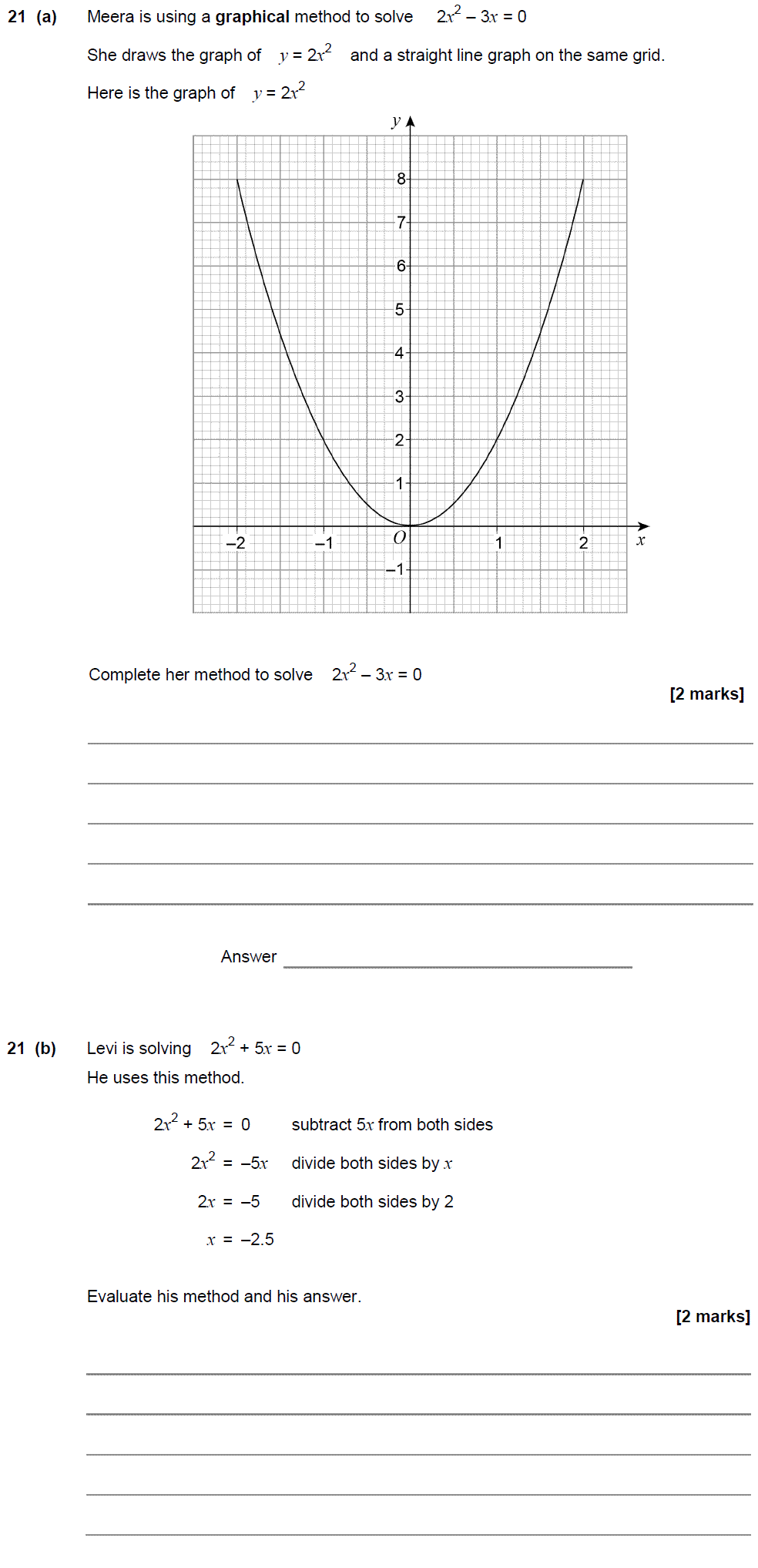



Quadratics are algebraic expressions that include the term, x², in the general form, ax² + bx + c
Where a, b, and c are all numbers. ‘a’ is coefficient of x² term, b is the coefficient x term and c is constant.
We factorise quadratic expressions using double brackets. There are different methods we can use depending on whether the coefficient of x² is greater than 1.
Let’s learn factorising quadratics into double brackets. (nx + m) (px + q).
There are 2 main types of quadratics you will need to be able to factorise; one where a = 1 and the other where a ≠ 1
Factorising, or factoring quadratic equations is the opposite of expanding brackets and is used to solve quadratic equations.
For example, in the form of x² + bx + c requires two brackets (x + d) (x + e).
Step 1: First find the factor pairs of the constant number (c).
Step 2: Find a pair of factors that add up to give the middle number (b) and multiply to give the last number (c).
Step 3: Write two brackets and put the variable at the start of each one looks like: (x + __) (x + __)
Step 4: Write one factor in the first bracket and the other factor in the second bracket. Writing signs in proper order is important.
Step 1: Multiply the end numbers together (a and c) then write out the factor pairs of this new number in order.
Step 2: We need a pair of factors that add up (+) to give the middle number (b) and times (✕) to give this new number.
Step 3: Rewrite the original expression, this time splitting the middle term into the two factors we found in step 2. The order of signs does matter.
Step 4: Split the equation down the middle and fully factorise each half. The expressions in the brackets must be the same.
Step 5: Factorise the whole expression by bringing the contents of the bracket to the front and writing the two other terms in the other bracket.
Example 1:
Factorise x² + 5x + 6
Solution:
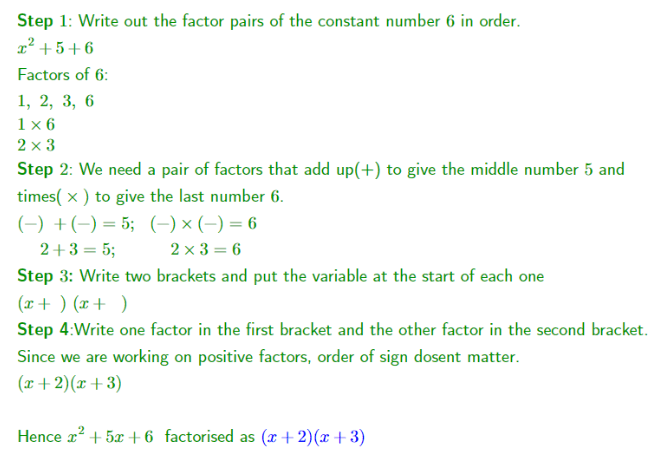
Example 2:
Factorise 6x² + 5x − 6
Solution:
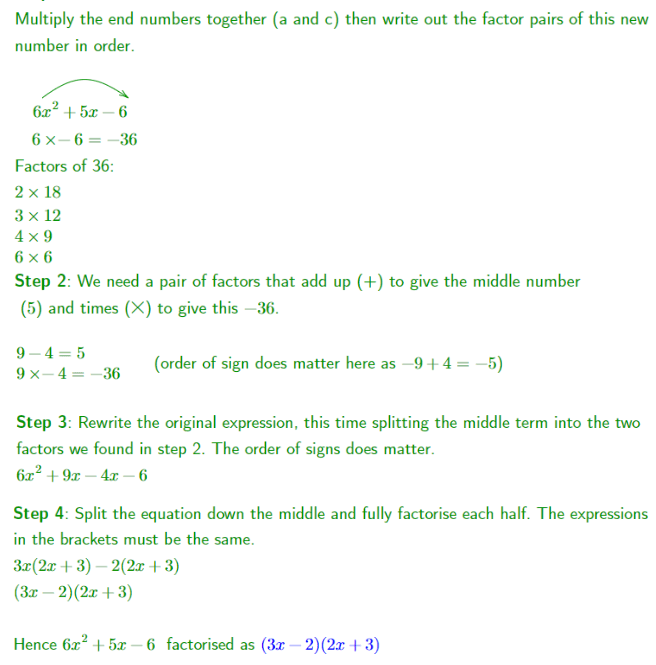
Example 3:
Factorize 2x² - 14x + 20
Solution:
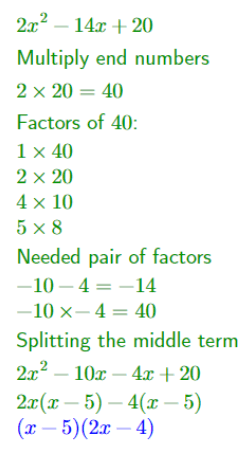
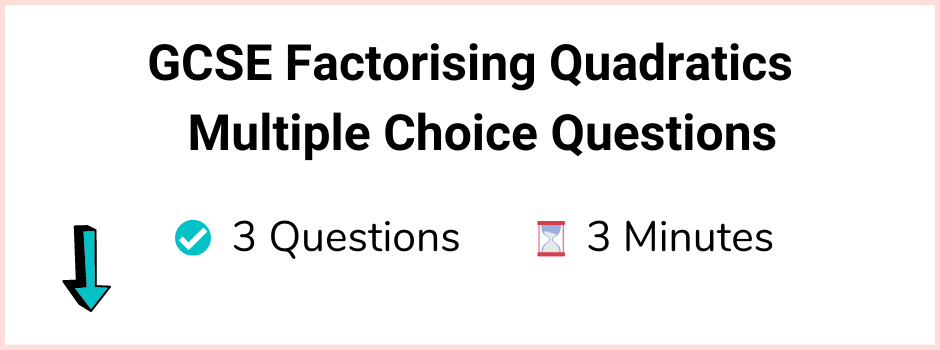
The main topics in GCSE Maths are:
With regular practice of GCSE Maths topic-wise questions and GCSE Maths past pacers, you can easily score high marks.
Although many people think of GCSE maths as a difficult subject, with the correct training and preparation,you can master it in time. You can practice GCSE Maths topic-wise questions daily to improve speed, accuracy, and time and to score high marks in the GCSE Maths exam.
A grade of 4 or 5 would be considered "good" because the government has established a 4 as the passing grade; a grade of 5 is seen as a strong pass. Therefore, anything that exceeds this level would be considered good. You can practice GCSE Maths topic-wise questions to score good grades in the GCSE Maths exam.
You can get a high score in GCSE Maths through meticulous practice of GCSE Maths topic-wise questions and GCSE Maths past papers.
© 2014 - 2024 PiAcademy Limited, All Rights Reserved